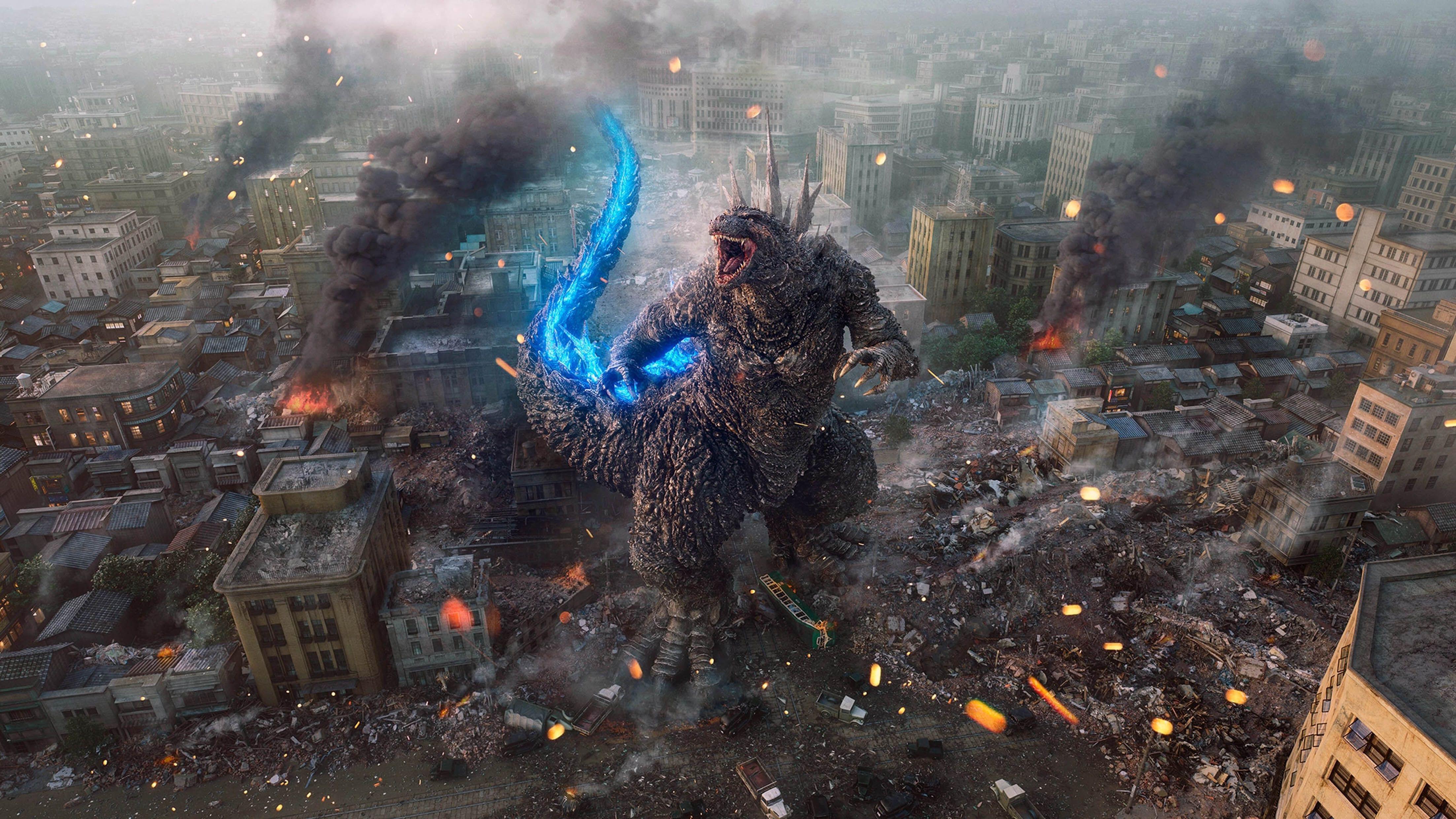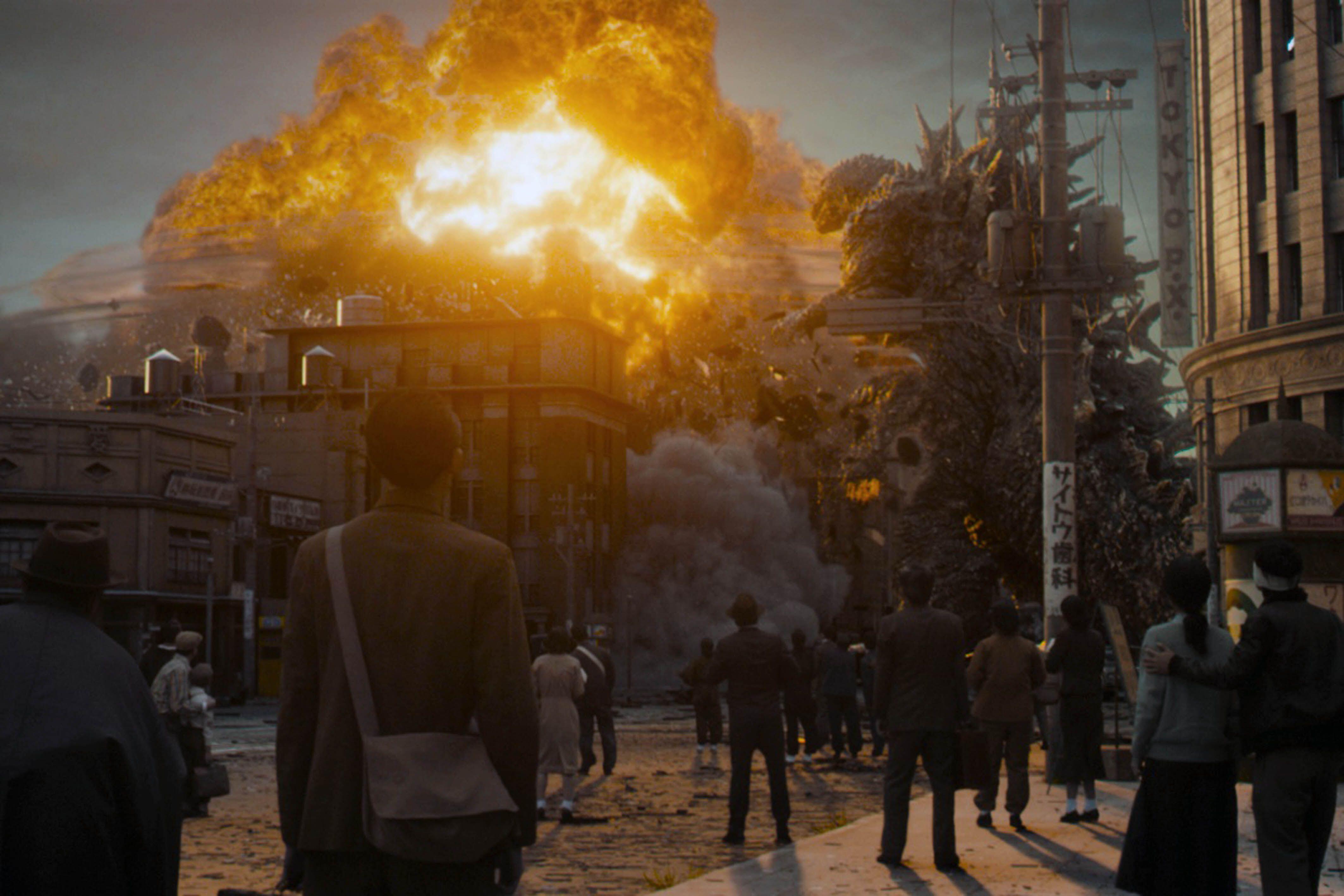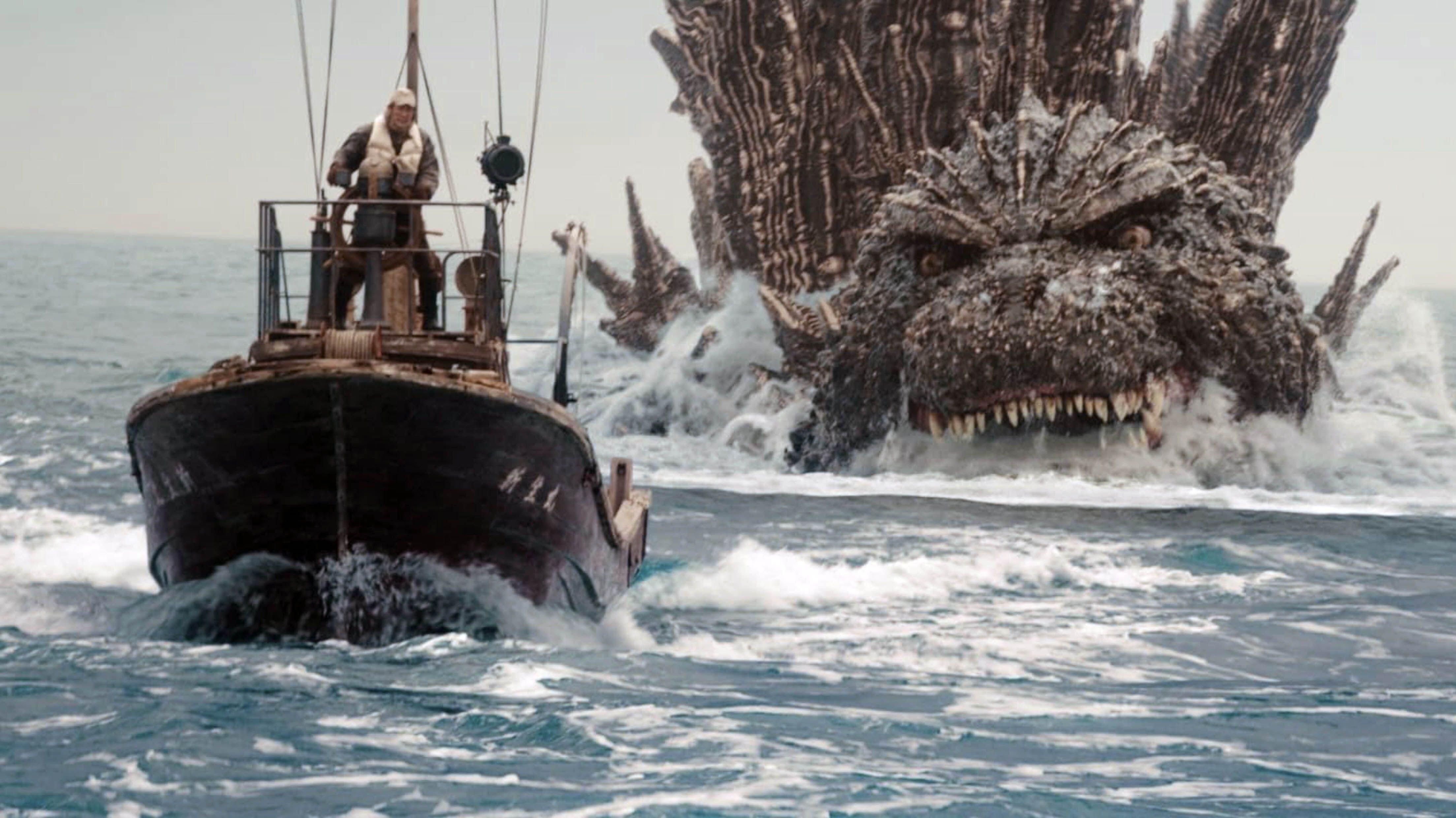
If I'm being honest, most war movies strike me as different flavors of the same played-out, pro-military propaganda. Every so often, I'm pleasantly surprised by an outlier (looking at you, "Hacksaw Ridge"), but not once have the credits rolled and I've walked away with a new all-time favorite movie. Until "Godzilla Minus One," that is.
Because yes, "Godzilla Minus One" is a war movie. More specifically, it's about the atomic bomb, the lasting terror and trauma inspired in the only country to date to experience its full destructive might, and, most importantly, the dauntless, all-too-human spark of hope that survives in the face of seemingly insurmountable odds.
The Godzilla franchise has never been shy about its post-World War II inspiration and themes (more on that in a bit). Yet what really struck me while watching "Godzilla Minus One" was how grounded and emotionally rich it felt compared to another 2023 blockbuster centering on the atomic bomb: "Oppenheimer." And that's saying a lot given that only one of them features a giant monster rampaging through Tokyo shooting laser beams out its mouth.
Christopher Nolan's epic was a dud by comparison
While I didn't hate "Oppenheimer," per se, I certainly didn't come away with a glowing impression. Christopher Nolan's epic biopic about J. Robert Oppenheimer (Cillian Murphy), the man behind the invention of the atomic bomb, had a few powerful moments, sure, and it was clear Murphy, Robert Downey Jr. and the rest of the cast put their hearts into their performances. But overall it felt more like a three-hour-long lecture than a movie.
I got earful after earful about why characters were the way they were and why they made the decisions that they did and how high the stakes were and on and on and on. Yet rarely did any of it land with the emotional impact it was clearly being set up for.
Somehow, even with a three-hour runtime, Oppenheimer's motivations and obsession with quantum space and the cosmos still feel under-told. It leads to some puzzling moments where things just don't line up, like when his colleagues repeatedly compliment his "integrity" in the same breath as they comment on his multiple affairs with known married women. Or when his sense of morality only seems to come out in full force during the development of the hydrogen bomb in the decades after World War II.
To give credit where credit is do, we do see glimpses of Oppenheimer's remorse in the immediate wake of Hiroshima and Nagasaki. They're easily some of the most poignant moments in the movie, watching his psyche crack as horrific physical reminders of the atom bomb's destruction manifest in the world around him. Charred corpses appear among the crowd cheering him and his team for their part in the war effort. Yet because these moments are so few and far between, it feels shallow, Oppenheimer's character development unearned. A gesture to the torment the audience is expected to assume is eating away at Oppenheimer.

Godzilla used Hyper Beam. It's super effective.
On the other hand, "Godzilla Minus One" wrestles with these very same themes — regret, PTSD, reckoning with one's own legacy — with masterful storytelling that stabs straight to your heart. Not only did I cry watching it in theaters, I bawled — I'm talking sobbing, snot, the works.
That's not something I ever would have imagined I could say about seeing my first Godzilla movie. Having grown up watching anime, I was aware of Godzilla's cultural significance and vaguely remember learning that the franchise came out of post-war Japan. But until watching Godzilla Minus One, I hadn't fully grasped the kaiju's history as a metaphor for nuclear weapons.
Long-time producer Tomoyuki Tanaka, widely regarded as the franchise's creator, said in retrospect of the original 1954 Godzilla: "The theme of the film, from the beginning, was the terror of the bomb. Mankind had created the bomb, and now nature was going to take revenge on mankind."
In that same article, the film's composer Akira Ifukube sheds even more light on the parallels: "The Japanese had fought with all their spirit, but it was modern technology that defeated them. Godzilla is unaffected by modern technology. He is stronger than the weapons that brought Japan to its knees.”
"Godzilla Minus One" lays bare the original titan's brilliance — and does so with such a heart-wrenchingly powerful message of hope about humanity that you can't help but feel moved by it. Written and directed by acclaimed CG animator and VFX artist Takashi Yamazaki, it's set during the very tail end of World War II after the nuclear bombings of Hiroshima and Nagasaki. It follows Kōichi Shikishima (Ryunosuke Kamiki), a kamikaze pilot who hesitates in his mission by detouring to a maintenance stop on Odo Island. He has no way of knowing that Japan's surrender is on the horizon. But after one fateful encounter with a reptilian behemoth that stomps ashore and wreaks havoc, what he does know is that the life he’s known has come to an end.
Without giving too much else away, "Godzilla Minus One" sums itself up in a single quote: "My war isn't over yet." It's the kind of line that, seeing it now without context, almost sounds cheesy. Like if I'd read it quoted in an article, I would have rolled my eyes at it. Yet it lands with more emotional oomph than anything I saw in "Oppenheimer" by a mile.

Two peas in a kaiju-size pod
I'm sure the argument could be made that, as a biopic, "Oppenheimer" shouldn't even be compared to a purely fictional movie, as it's limited by the canon of the reality it's based on. To that, I'd argue two points.
The first is that any movie or show "inspired by real events" is going to take some creative liberties; Nolan's is no exception, and regardless, my complaints didn't stem from the subject matter to begin with. If anything, that was one thing "Oppenheimer" had in its favor, as I enjoy learning about the nuclear arms race and it features heavily in some of my favorite media elsewhere like Fallout and Max's Chernobyl.
The second is that, while obviously, I don't have much to compare to, for a Godzilla movie, the titular kaiju ate up surprisingly little screen time. The emotional core of Godzilla Minus One (and the majority of its runtime) is built around its characters, their struggles, and the shared trauma that nonetheless threatens to tear them apart. So comparing the two on the grounds of storytelling is more than fair as far as I'm concerned. They share similar themes, story beats and character arcs — and I don't think even a kaiju rampaging through Los Alamos could have improved my opinion of "Oppenheimer."







